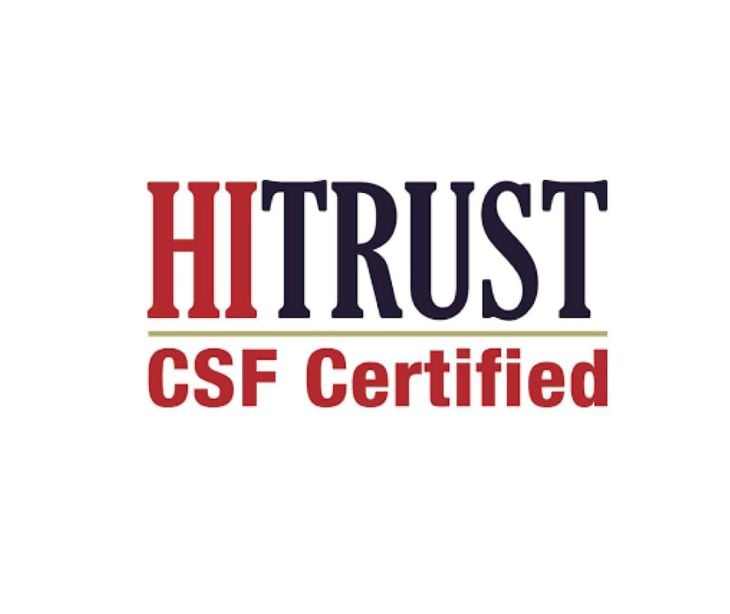
While there is no official HIPAA certification program endorsed by the U.S. Department of Health and Human Services (HHS) or the OCR, third-party organizations offer various certifications.
Securing a HIPAA certification allows healthcare practices to showcase a commitment to patient privacy and data security. It is a testament to the fact that your staff is equipped with HIPAA training and knowledge.
Note: HIPAA certification is not a mandatory requirement. The decision to pursue a HIPAA certificate lies in the hands of each individual practice based on unique needs and priorities.
What is the purpose of HIPAA certification?
HIPAA certification is the process of undergoing a compliance assessment or audit performed by an independent organization. This process evaluates an entity's adherence to HIPAA regulations. The certification validates a practice or business associate's HIPAA compliance.
In the case of an audit or investigation by the Office of Civil Rights (OCR), this shows that there is an effort to set in place HIPAA compliance and protect against internal and external threats to patient data.
How can HIPAA certification benefit my organization?
Certification proves that privacy and security measures, including access controls and encryption, are effectively implemented to safeguard electronic protected health information (ePHI) to avoid threats that compromise data. This assures patients of the security and confidentiality of the data they entrust with your practice.
It also sets certified organizations apart by signaling an adherence to high standards of privacy and security. Many business associates prefer working with certified entities, making it easier to establish partnerships and collaborations.
What does a HIPAA certification entail?
To successfully complete a HIPAA certification, the organization must pass an audit. The requirements of both business associates and covered entities include:
- Adhering to the Privacy Rule: This involves assessing the privacy policies and procedures that safeguard PHI, providing individuals with notice of their privacy rights, and ensuring that a privacy officer responsible for overseeing privacy practices has been designated.
- Security Rule compliance: The audit assesses whether the organization's security policies adhere to administrative, technical, and physical safeguards.
- Breach notification rule requirements: Procedures must be in place to promptly identify and respond to breaches of unsecured PHI.
- Training and education: An effective training program must be in place for employees handling PHI.
There is a slight difference in the audit applied to covered entities versus that of a business associate. The difference is the specific requirements that take into account the nature of the service the business associate provides.
An example is that the services of a HIPAA compliant email encryption service are different from that of a healthcare provider. While one would need encryption measures for transmitting and storing email-related data, another would require strict measures of access control and securing or encrypting data at rest.
What are the consequences of failing a HIPAA compliance audit?
HIPAA compliance and HIPAA certification are two things that go hand in hand. Like a risk assessment, a HIPAA certification audit assesses how effectively protected PHI is in your practice. If your organization fails the audit, issues can be fixed before they lead to a violation or breach.
While there are no immediate consequences, there could be down the line. If a violation leads to an OCR (or insurance) investigation, the ability to prove compliance efforts is a mitigating factor in many cases.
Different levels or types of HIPAA certifications
While there is no official HIPAA certification program endorsed by the U.S. Department of Health and Human Services, there are different levels or types of certifications offered by third party organizations. Here are a few examples:
- Certified HIPAA Professional (CHP): This certification is offered by various organizations and signifies that an individual has demonstrated knowledge and understanding of HIPAA regulations. It is typically targeted toward individuals responsible for HIPAA compliance within an organization.
- Certified HIPAA Administrator (CHA): The CHA certification focuses on individuals responsible for managing HIPAA compliance programs within healthcare organizations.
- Certified HIPAA security specialist (CHSS): The CHSS certification is geared towards professionals specializing in HIPAA security.
- Certified HIPAA privacy security expert (CHPSE): This certification encompasses both privacy and security aspects of HIPAA compliance.
What is HITRUST CSF certification?
HITRUST, or Health Information Trust Alliance, develops, maintains, and provides broad access to its widely adopted common risk and compliance management frameworks, related assessments, and assurance methodologies.
The HITRUST CSF certification is a rigorous process that involves implementing and maintaining the security controls and standards necessary to protect sensitive data.
Having HITRUST CSF certification means that a company has taken extensive measures to ensure the security of sensitive data. It is widely considered the gold standard of trust and reassurance, as it signifies a company is taking cybersecurity seriously and has taken necessary steps to prevent data breaches.
Paubox is HITRUST CSF certified.
Ongoing compliance obligations after obtaining HIPAA certification
Another name for a HIPAA certification is point-in-time accreditation. This is because HIPAA compliance requires ongoing measures to maintain. This includes regular risk assessments and the updating of policies according to not only the changes in HIPAA regulations and associated legislation and the natural changes that occur within your organization.
Certifications can be obtained regularly to assure patients that compliance is continuous.
Related: What is a HIPAA risk assessment?
Subscribe to Paubox Weekly
Every Friday we bring you the most important news from Paubox. Our aim is to make you smarter, faster.




